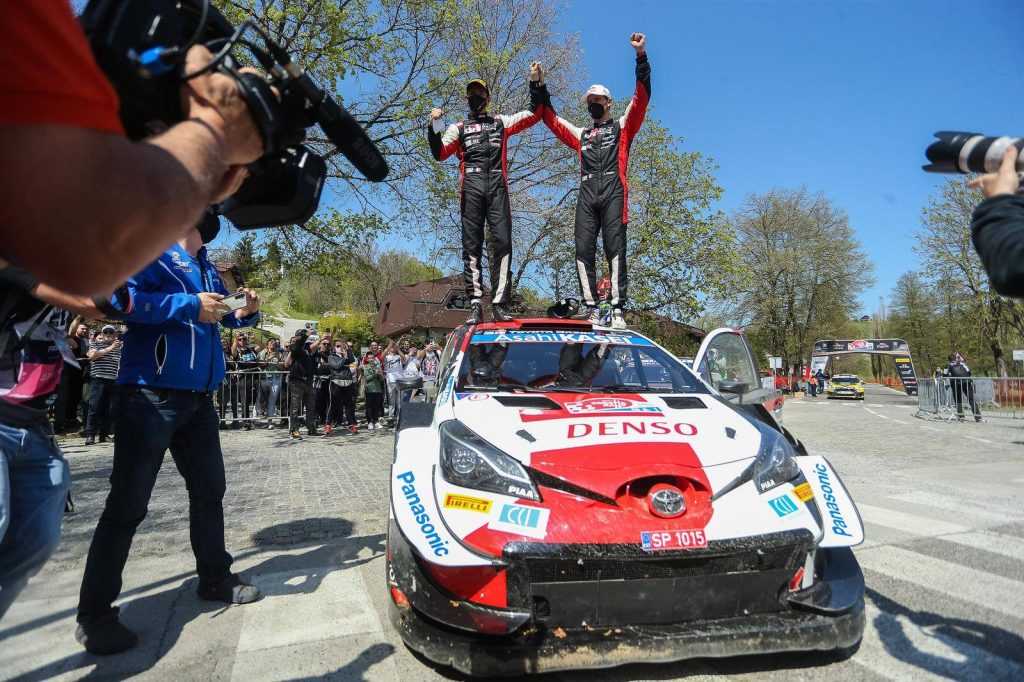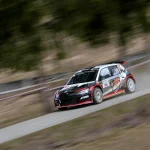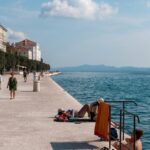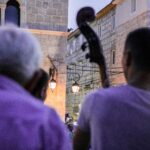At this year’s Sports Fest, one of the most exciting presentations was that of motorist Danijel Šaškin who, together with Davorin Štetner, brought the World Rally Championship race to Croatia. He addressed the observers with fascinating figures that the Croatia Rally was watched by more than 100 million people in more than 150 countries. Furthermore, estimates of how much consumption was related to this elite car competition, which was held in Croatia for the first time, are also impressive, reports Vecernji List.
“We are talking about 15 million euros, and we could not count on the spectators because, due to the pandemic, we were not allowed to have them. But according to police data, there were about 150,000 of them in the speed tests. We believe that in a typical year we can have half a million of them, and then the profit for the state would be about 50 million euros. The state would sell 12 to 15 million euros from the VAT alone for an event that lasts four days.
I was surprised that we are record-holders on social networks, that we had millions of impressions, that the follow-up of our Facebook channel and WRC was terrific. I was also surprised by so much media value. The most conservative estimate was about 50 million euros, and the strongest, with reruns, almost 200 million euros. And the Croatian National Tourist Board has not spent so much on the promotion of our tourism in ten years,” Šaškin explains of the great coverage.
“Croatia is new in this story, and in the last few years, we have imposed ourselves as a new tourist destination. It seems that we are currently the 18th destination in the world by profession, and I believe we can enter the top 10. The next reason for the great follow-up was that Finnish driver Rovanpera, the youngest driver in history to lead in this competition, crashed on the fourth kilometer. In addition, it was the third most uncertain race in history as the winner celebrated with only 0.6 seconds ahead of the runner-up. Ahead of us is only Jordan with 0.1 seconds and New Zealand with 0.5 seconds.”
The interest in the Croatia Rally was also helped by the traffic incident of the seven-time world champion Frenchman Sebastien Ogier.
“This provoked a lot of comments all over the world, including stories that he would end up in prison in France. So like that, for us organizers, there were more heart attack moments, but we survived and managed to impose ourselves to the extent that the day after the race, we got an open offer to continue with it.”
And for that to happen, Croatian organizers need three million euros.
“The Croatian Government has guaranteed us seven and a half million kuna a year, or one million euros. And where will they get the remaining two million? We would close the second million with commercial sponsors such as HEP, Ina, ACI Marina, Konzum… We have to earn the third million ourselves, from tickets, sales of our products and services, and the City of Zagreb would participate with a little more than half of that amount. And that is the agreed amount that needs to be formalized. We are waiting for that amount to be confirmed by the City Assembly so that Mayor Tomašević can sign the contract. But if we do not close the financial construction by mid-November, we will have to give up because the FIA will no longer wait for us.”
It would be a pity for such a project to fail due to Croatian bureaucracy.
“You know what, there are great people in the Ministry of Tourism and Sports, just like in the CNTB, but they are also struggling with the system in which they work, and in the end, in this country, it all comes down to a few people who make such decisions. And the biggest problem is getting to them.”
One such initiative led by Šaškin was dropped because there was no decision from the political top.
“About ten years ago, Ozren Muller and I brought the main organizers of the Dakar Rally to Croatia. Given that the Lisbon start was canceled due to terrorism, we convinced the organizers that it would be good for this famous rally to start from Zagreb. The idea was to drive to Pula on the first day, to Dubrovnik on the second, and that the participants boarded the ferry to Tunisia there, and they liked it. Unfortunately, the then Prime Minister Jadranka Kosor did not like it. Either she did not understand the significance of everything, or we failed to convey it to her. And when a small country misses such an opportunity, it is a pity because, unlike big countries, big opportunities do not come to us often. It would be good if we had a special office for such events that would evaluate, approve or reject events of potential benefit to Croatia,” concluded Šaškin.
To follow the latest sports news in Croatia, follow TCN’s dedicated page.
To learn more about sport in Croatia, CLICK HERE.











